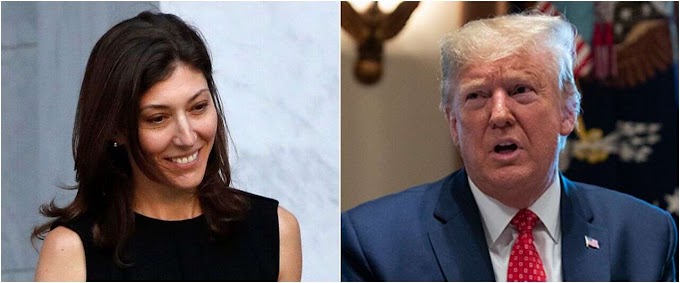 |
| Image: CNN NEWS |
US President Donald Trump doubts the purpose of the alliance, while French President Emmanuel Macron doubts its future. Alongside these two, we now have Turkish President Recep Tayyip Erdogan, who is disrespecting his most basic principles.
For seven decades, a fundamental principle united the 29 members of the North Atlantic Treaty Alliance (NATO): trust. NATO Article 5 stipulates that an attack on one is an attack on everyone - or to paraphrase the nineteenth-century novel "The Three Musketeers," "All for One and One for All."
Much of this spirit of solidarity came out the window as Trump entered the White House, setting the stage for some of the current tensions between the US and its allies, as well as between European countries.
Many of those same allies are now struggling to respond to Trump's disruptive moves - and what kind of US president can follow him.
According to Jonathan Eyal, associate director of London-based RUSI and a long-time NATO expert, Britain believes Trump is an aberration and that his successor will be in favor of NATO. Macron, on the other hand, sees Trump as a harbinger of upcoming American policies, so Europe needs to create its own defense force.
In short, the alliance's biggest spender is the most uncertain investor, and that scared the whole stable.
Violation of another NATO principle is compounding this discomfort. A key facet of the alliance is not to buy weapons from outside the club and, doubly, not to buy from their most aggressive opponent, Russia.
Erdogan seems to have missed this memo, or worse yet, just doesn't care.
The only time Article 5 was triggered was by President George W. Bush after the September 11, 2001, terrorist attacks in the United States. Like everyone else at that time, Turkey approached to help, which, as the sole member of the Muslim NATO nation, was extremely helpful - and meaningful.
Since then, autocratic Erdogan has come to power and seems to be testing not only NATO's cohesion but its entire mission.
Not only has it purchased Russia's sophisticated S400 air-to-air missile system and plays with the purchase of a bunch of Russian fighters to complement its new rockets, but it is also politically welcoming Russian President Vladimir Putin in a way that is out of place. tune with NATO. the direction of travel.
As a vital bulwark on NATO's southern flank, Turkey cannot easily be ruled out.
According to Eyal, while Erdogan still values NATO, he and the Turkish military "know very well that if they left NATO that would be a big goal for Turkey itself. They would shoot themselves - and almost literally."
Shaken to the core
In the run-up to NATO's London summit this week, Alliance Secretary-General Jens Stoltenberg said he believed it was still fit for purpose. "If we look at NATO's history, we have seen disagreements before, dating back to the Suez crisis of 56, until the Iraq war in 2003," he told reporters last month.
"But the strength of NATO is that, despite these differences, we have always been able to unite around our main task: to protect and defend each other. And that is my goal. And I am absolutely sure that we can do that too." this time. "
Even so, the elephant in the room as NATO leaders gather at a luxury hotel on the outskirts of the UK capital this week will be like managing Trump. According to Eyal, he shook NATO to the core. "He is the first president since World War II to openly question the validity of the security assurance the United States has given to Europeans and to ask whether it is indeed in the US interest to have the alliance."
The tensions on the table this week would have been hard to imagine even a decade ago, but they have been building for a while.
NATO was born from the embers of World War II, but the generations under whose sacrifice its creation made sense are dying. Without the hard-won camaraderie, unity is being tested by national self-interest. Although Trump was persuaded to make almost the right noise when asked about Article 5, his tweets and mercurial nature, coupled with the scarcity of restricting military voices around him, inspire little confidence that he would act equally with all allies if he would do it.
Notably this summer, when Iran hijacked a British-flagged tanker near the Strait of Hormuz, confiscating the vessel at one of its ports and detaining the crew, Trump noted that Washington had not signed an agreement with the United Kingdom obliging the US. coming to Britain. help.
Erdogan Pride Test
Such object lessons can be dismissed just to keep the alliance slow, but outside NATO they are observed intensely.
When Trump shows up at NATO meetings, uncertainty descends over the room, and only when he leaves do the inmates say a collective sigh escapes.
Erdogan presents a problem on a different scale.
According to the US, an official told reporters after meeting with senior Turkish officials recently, the message was clear that the purchase of weapons outside the club is not active.
They told the Turkish authorities that this could not go unpunished: if they did, everyone else would. Although the employee did not elaborate on the sanction, the implication is that Erdogan's pride could be tested and that it could have uncertain results.
Fundamentally, all alliance members must wear compatible equipment. By not only buying Russian hardware, Turkey not only makes it impossible, but it risks giving Russia the military advantage.
However, sanctioning Turkey may not be as easy as it sounds, Erdogan is as mercurial and calculating as Trump. NATO's handling of Erdogan is likely to be waiting rather than provoking him, a calculation spurred by his growing popularity at home.
However, any decision on Erdogan is likely to be compounded by Macron's sense of urgency that NATO must address its problems today. The French president does not speak for Europe, of course, however hard he tries, but that in itself creates another line of tension.
One person, in particular, will be happy to see signs of dissent in London: Putin, who Eyal says is likely to be watching Trump's tweets closely.
"It is precisely the cracks and precisely the continuing reserve that President Trump continues to express," said Eyal. "It's easy to dismiss these tweets and off-manga comments as slightly fun. They are not fun and especially very instructive to someone in the Kremlin."
The Russian president has long felt threatened by NATO, of course. Responding to their provocations is the thorniest of alliance challenges - their actions in Ukraine, Syria and Libya probe NATO's cohesion - and this, in turn, emphasizes their internal divisions.
A good result in London would be to settle NATO differences behind closed doors. But with Trump in the room, it won't be easy.
Collect From - Cnn News



0 Comments